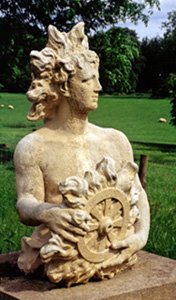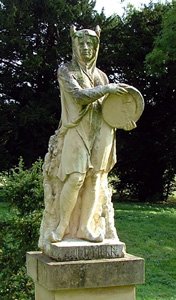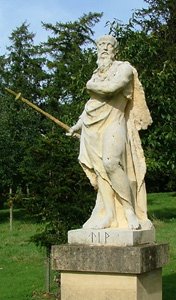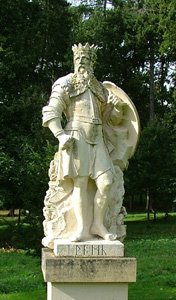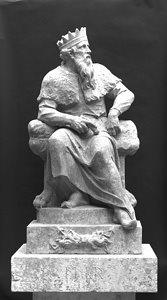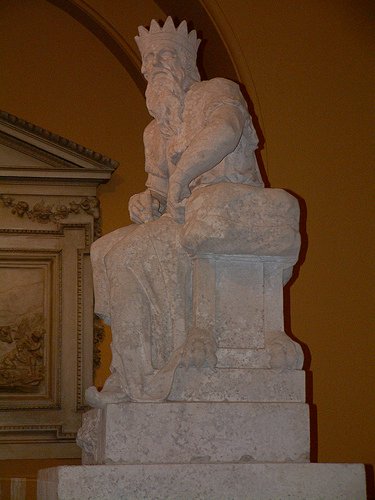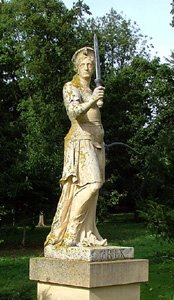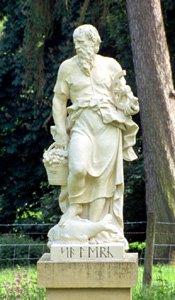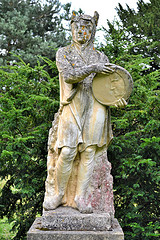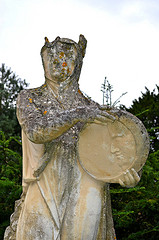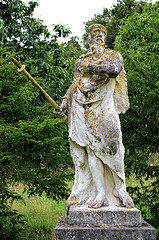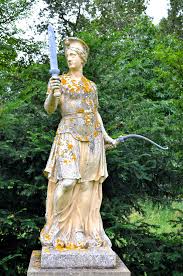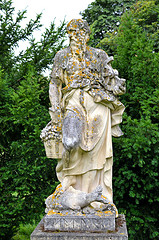John Michael Rysbrack
Stowe's Sylvan Temple
Dedicated to the Saxon Gods
Hawkwell Field, Buckinghamshire, England
[HOME]
[POPULAR RETELLINGS]
The Saxon Gods depicted here are based on Richard Verstegan's
Restitution of Decayed Intelligence in Antiquities (1605)
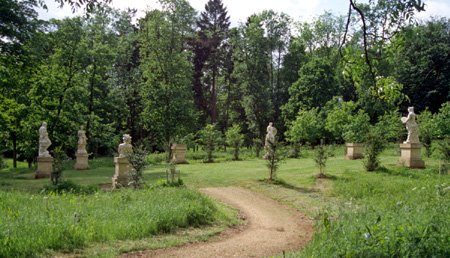 Hawkwell Field, Buckinghamshire, England |
||||||||||||||
|
||||||||||||||
| Originally, all seven
Deities stood in a round hedged enclosure or cabinet, open to
the sky and having an altar in the middle, in the area now
occupied by the buildings of Stowe School. This was called the
Saxon or Sylvan Temple and, according to the Survey, was in
existence by 1720, though the statues themselves may not have
been in place until 1729, by which time the sculptor Rysbrack
had produced both them and several of the busts that eventually
found their way into the Temple of British Worthies. Bevington
places the Deities in the Sylvan Temple by around 1727. In the
mid 1740s the statues were removed to an area just to the east
of the Gothic Temple, and in 1771 to their present location.
[Source:
John D. Tatter, Birmingham-Southern College] In 1732, Gilbert West, writing anonymously, composed the poem Stowe, the Gardens of the Right Honourable Richard Lord Viscount Cobham. Address'd to Mr. Pope. The excerpt concerning the Saxon gods reads:
|
||||||||||||||
Additional Images
|
||||||||||||||
[POPULAR RETELLINGS]
